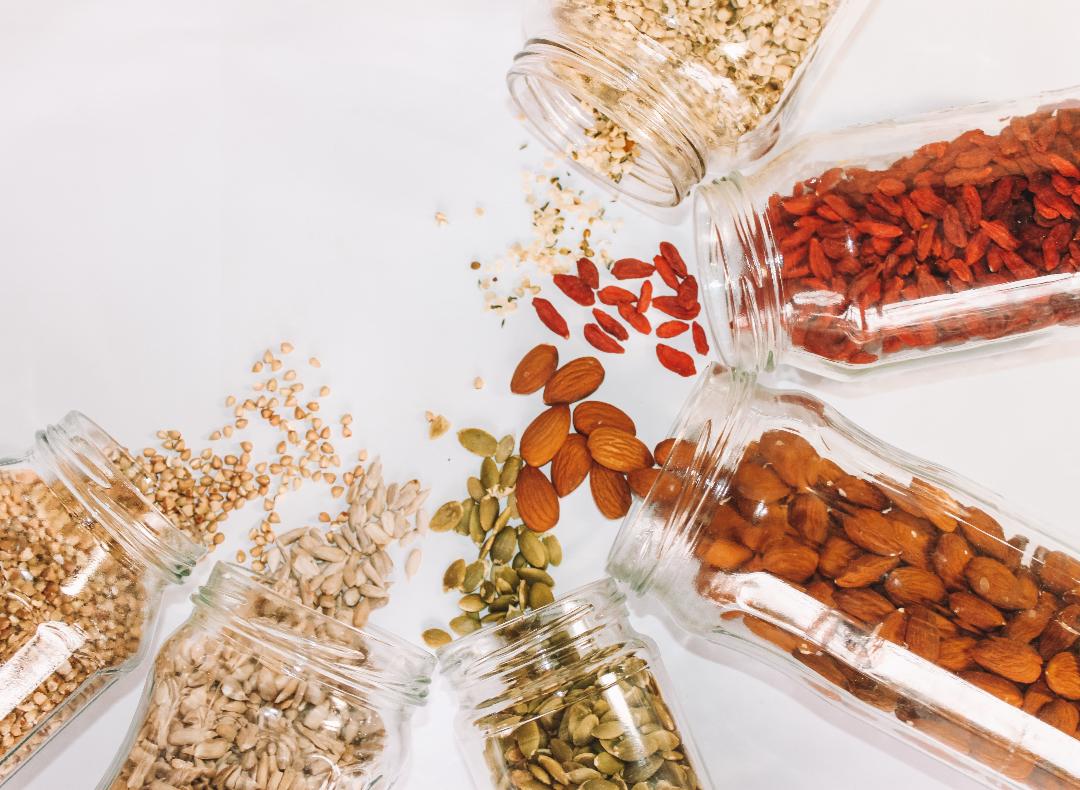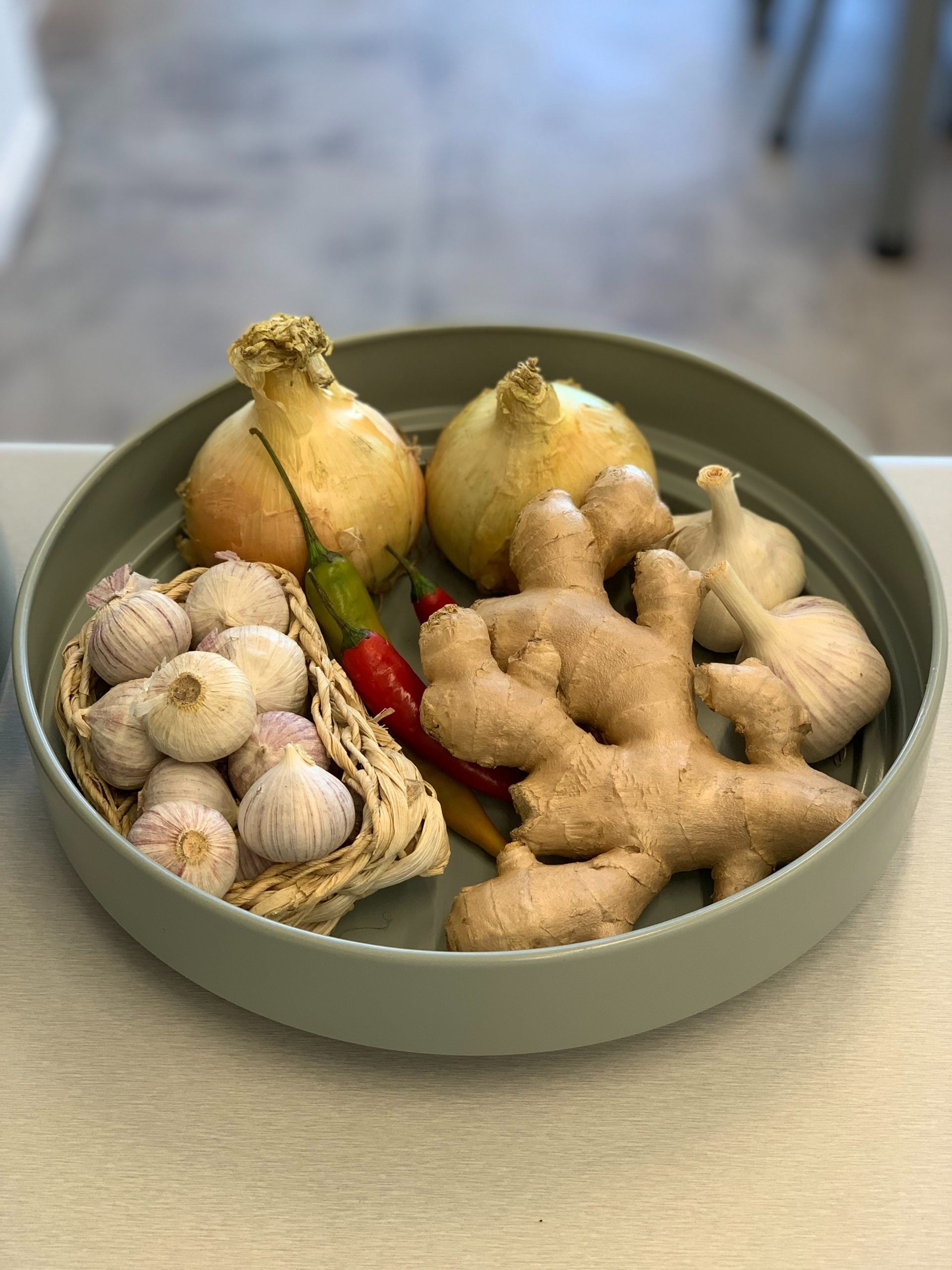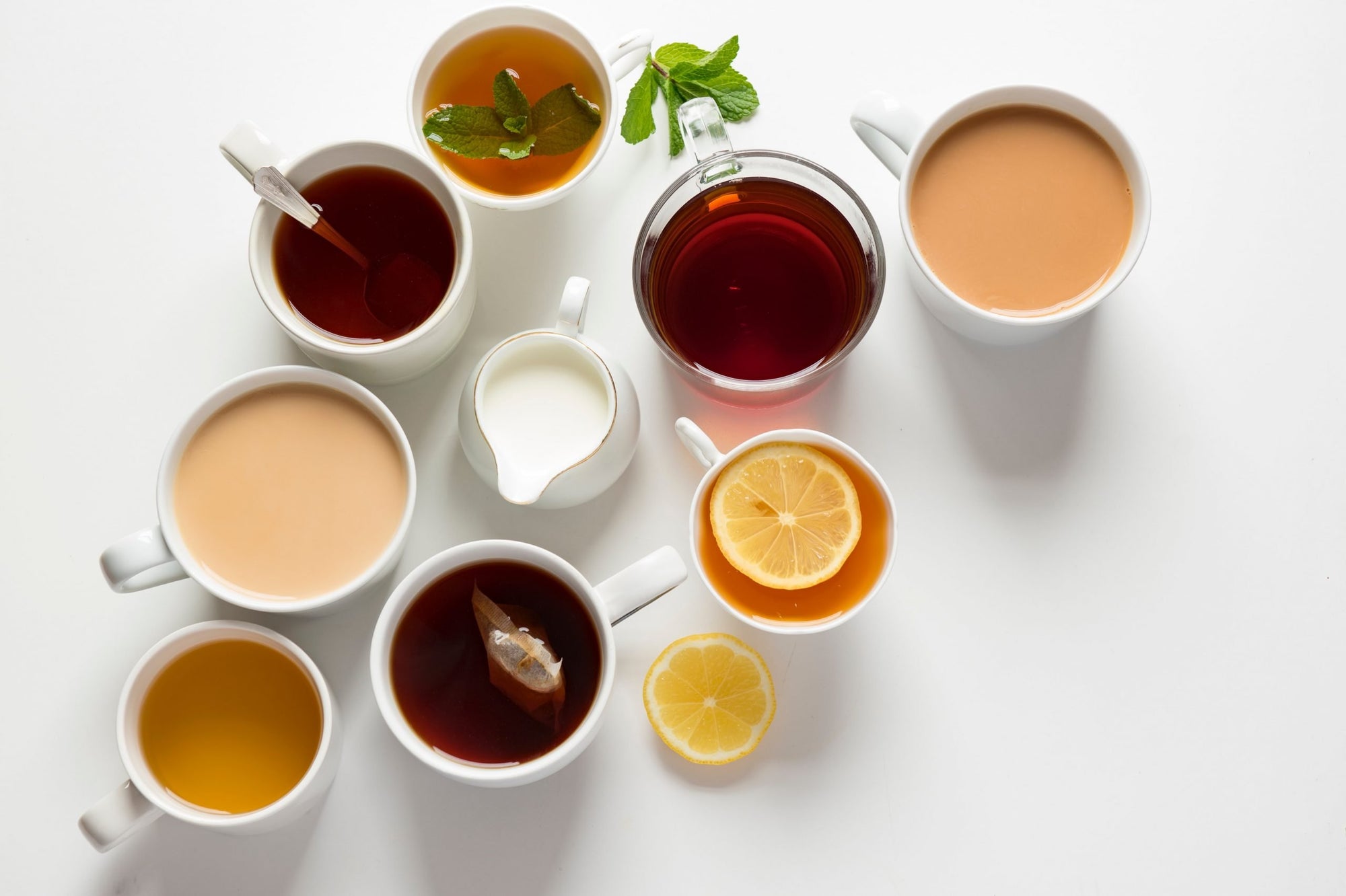Bloggin Noggin

Immune System
Run, Walk, Dance or Skip-Why Movement matters for your Noggin
“I’m so sorry, I’ve forgotten your name…”
Have you ever had that experience of being introduced to someone and before you have even finished your next sentence you have totally forgotten their name ? Whilst zoom kindly helps us avoid that by having names displayed at the bottom of each person’s screen box, it won’t be too long (hopefully) before we are back out into some sort of real world and having to meet people face to face, or at least mask to mask
Is that normal?
Forgetfulitis happens to us all. The more plates we are spinning at one time can mean that we find it hard to pay attention to details and are increasingly likely to forget stuff. Combine that with stress and not sleeping properly is it any wonder we can’t remember where we put the keys.
Move your feet, shake your brain cells
Aerobic - heart racing blood pumping - exercise can help us with our memory. Exercising helps with the release of brain cell supporting chemicals that can help build new brain cells in the parts of the brain that are important for filing and storing our long term memories. It is never too early or late to start-a study from the Journal of Alzheimer's Disease looked at the impact of different types of exercise in a group of people considered at risk of Alzheimer's Disease. They found that memory score results improved by over 40% in those who participated in regular aerobic exercise versus regular stretching.
There is no I in team
Whilst all movement and exercise is important for brain health, playing in team sports appears to have added benefits for the efficiency of how our brains work as we age. A report looked at 80 studies that had explored different types of exercise and how they impact our cognitive abilities. All movement and exercise matters but it seemed that playing a team sport had the most marked benefit to how our brain ticks. Sebastian Ludyga PhD co wrote the report and states that playing even in partnership is particularly helpful as it means our brains have to process and react to ‘the somewhat unpredictable movements of our teammates or opponents’ .
Move more, feel better
When we exercise our brain releases feel-good chemicals endorphins as well as neurotransmitters which helps regulate our mood, sleep and appetite, including serotonin. Studies have shown that those who exercise regularly are less likely to report depressive symptoms. Regular exercise also helps with our sleep routines and this in itself is crucially important for our mood, energy levels and can help our memory.
The bottom line? Getting active regularly, in whatever form you enjoy, can actually change the structure and help improve the function of our brain at any age.
Keep Well
Dr Clara Russell

Immune System
2,4,6,8 Which Omega do we appreciate?
Omega 3
Omega 3 Fatty Acids have a vital role to play in keeping your brain healthy. They are essential for nerve cells and brain cells to communicate and translate information into action elsewhere in our body.
EPA and DHA - 2 types of essential fatty acids-are the powerhouse behind the benefits of omega 3. DHA in particular is a key player in the formation and connection of brain cells
EPA has the job of being involved in production of healthy inflammatory responses as well as being a key part of nerve cell creation.
As we get older, our bodies become less good at using EPA and DHA so it is particularly important to keep an eye on our intake of omega 3 at all ages.
We don't make our own omega 3, we have to consume it - fish, walnuts, chia seeds and garlic are all good natural sources. It can be hard to eat enough though, especially as we get older and our body is less efficient at using omega 3 so good quality omega 3 supplements can help with our intake.
Omega 6
In contrast, there is rarely a shortage of omega 6 found in our food as they are a key ingredient in our modern food cupboards. Cereal, fast food, meat, processed foods and dairy products are sources of omega 6. Whilst there is little evidence that too much omega 6 can be harmful, the key is the balance of this in relation to the brain healthy omega 3. High levels of omega 6 have been shown to have a role in less healthy inflammation which is not good news for overall health.
Omega 9
Omega 9 is produced by our own bodies and can also be found in olive oil, nuts and seeds.
As we make our own omega 9 and we consume omega 6 in high quantities by the nature of modern diet, omega 3 is often the omega that we need more of.
Omega 3 and Brain Health
From ADHD in children, to depression in adults and progression of dementia, omega 3 is continuing to be evaluated for how its role in brain health may be explained further.
A recent study suggested that supplementing with an omega 3 supplement rich in DHA produces similar improvements in brain function to exercise in older women. Specifically, verbal memory ( such as recalling information on a list) and executive function ( how we manage and process and act on information ) seemed to be improved by those taking the supplement versus those who were not.
What’s the verdict?
As with many things in nutrition, little is clear cut but Omega 3 is the Omega we need to focus on with regard to looking after our brain health and keeping up with our other omegas.
Keep well, Dr Clara Russell

Immune System
Vitamin C is for everyday health, not just for Christmas
Vitamin C-where do you get yours?
I was a big fan of Sunny Delight in my youth, the orange juice that used to actually turn you yellow if you drank too much of it. I also enjoyed the odd orange and presumed that was enough to keep my vitamin C levels up. If I felt a tickle of a sore throat or that I was fighting something off, I’d eat an extra satsuma when I remembered and might add in a chalky tasting supermarket vitamin C supplement.
Vitamin C - more than just the cold and flu vitamin
I put my hands up- I underplayed the importance of vitamin C. This clever vitamin is needed all year round-not just when we think we need a bit of oomph.
Vitamin C is the most studied and best understood anti oxidant-it defends our cells against nasty free radicals to keep them ticking over and working at their best
Whilst vitamin C is found in orange juice, even in sunny d, it turns out the sugar in those juices makes it pretty hard to absorb the amount of vitamin C that is actually in the product. And even if you could absorb all the vitamin c in a glass of OJ, unless you have a diet that contains a lots of citrus fruits every day, you are still at risk of not obtaining enough vitamin C
Oranges are not the only fruit
Hear vitamin C think orange. Guavas, kiwi fruits, bell peppers and strawberries are even more C rich than the humble orange. Pile up the greens on your plate this festive season - tis the season to brussel sprout, another vitamin c rich food source.
Fun fact-Your brain is full of vitamin C
Vitamin C is more highly concentrated in your brain than in any other organ. For good reason. Vitamin C in your brain is used to make nerve cells (neurons) as well as myelin, an important insulator of nerve cells which helps nervous system cells communicate.
Beauty is vitamin C deep
Vitamin C helps us make collagen which is like a type of scaffolding to hold our cells up. All our cells need this so collagen has responsibility for keeping our skin look fresh and bright as well as supporting blood vessels
Immune super heroes
With its unparalleled free radical fighting abilities, vitamin C is the super hero sidekick our immune cells need. Insufficient vitamin C may make it that bit harder for our immune system to fight at its hardest. And we all know how important supporting our immune system is right now.
Stress weapon
Next to our brain, the adrenal glands (which sit on top of the kidneys) are the 2nd most vitamin C packed area in the body. Adrenal glands have a key role in producing life sustaining hormones as well as hormones involved in helping to deal with stress.
Keep Well, Dr Clara Russell

Immune System
6 Nutrients Important For Your Mental Health
As we know, good nutrition is a vital part of leading a healthy life. And as the old saying goes “ You are what you eat” and this rings true when it comes to the food we choose to eat and the nutrients our body absorbs from what we consume.
Dietary nutrients have a major role in our mental health. What we eat and drink impacts our mood, our energy levels, anxiety levels, ability to focus, and every other aspect of brain function.
Eating a healthy, well-balanced diet rich in vegetables and nutrients has been associated with feelings of well-being.
Here are six nutrients that may positively influence brain health and where you can find them
Vitamin B12
Vitamin B12 helps to maintain healthy brain cognition, nerve tissues, and red blood cell production. Naturally found in meats, fish, dairy products and some types of breakfast cereals and milk are fortified with B12. For those who don’t eat meet or are vegan, vitamin B12 is available in the form of supplements.
Vitamin D
It is needed for neurotransmitter production, and low levels of vitamin D have been linked to depression, anxiety, and a host of other mental health symptoms.
Vitamin D is also essential for maintaining healthy bones and teeth. Your body produces vitamin D as a response to sun exposure and you can boost your intake through certain foods or supplements - egg yolks, fatty fish, cheese, fortified cereals and juices.
Omega-3 fatty acids
Also known as omega-3 fats and n-3 fats, omega-3 fatty acids offer many benefits for your brain and body. It can help improve heart health, fight inflammation and autoimmune diseases. It supports healthy brain function and low levels of this type of fat can lead to unstable moods, depression, anxiety, poor focus, and attention. Fatty fish such as sardines, salmon and mackerel are excellent sources of omega-3 fats. Other food sources include nuts, seeds and oysters, etc.
Magnesium
An extremely important mineral and is involved in hundreds of chemical reactions in your body.
Low levels of this essential nutrient can lead to increased anxiety and panic, restlessness, poor sleep, and irritability.
Foods which t are high in magnesium include - leafy greens like spinach, kale, cabbage - and whole grains, legumes, nuts, seeds, dark chocolate, and some fatty fish.
Selenium
This is an essential mineral which has several important functions in the body from supporting reproduction to fighting infection.
Selenium acts as a powerful antioxidant and helps improve mood and it's also important for your thyroid health, among various others.
Foods which provide selenium are chicken, turkey, fish, Brazil nuts, spinach, bananas, mushrooms, eggs, cottage cheese, milk and yogurt, etc.
Zinc
Poor levels of zinc can impact mood and anxiety levels, reduce appetite, and lead to people generally feeling like they have no energy or motivation.
Zinc is abundant in lean meats, shellfish, legumes, whole grains, eggs, dairy foods, nuts and seeds.
Focusing more on nutrient-dense foods, moving more, getting adequate sleep, and managing stress will contribute to better physical and mental health.
Keep Well
Dr Clara Russell

Immune System
Brain, Belly, Bugs, Poo - What do these all mean for you?
Living with a 6 year old boy, poo is discussed more in our house than I would personally like. However as we learn more about the connections between our Brain and Gut, the role of bugs and how these can be understood through our poo, may mean that we all need to engage our inner 6 year old !
Hold up- Brain and Gut connection, how does that work?
Research has shown there are many connections between our brain and our gut. In humans, the neurotransmitter Serotonin is found in highest concentrations in our gut. Interestingly, patients with depression have been found to have low levels of serotonin when studied.
So hormones in our gut affect your brain and mood?
It looks that way - AND it's a 2 way street. There is a well known connection between stress and anxiety having an impact on our gut. Patients who suffer with irritable bowel syndrome or inflammatory bowel disease will often observe an increase or worsening of their symptoms at times of stress or when they are feeling anxious. And we may see it ourselves too even if we don't suffer from these conditions - feeling worried about something often increases those butterflies in the tummy and that can also ‘increase transit time’ ( ahem)
Bugs- yuck
The microbiome - a huge massive gigantic collection of bugs made up bacteria and viruses ( we all know more about these guys #pandemic) exists within our gut. Scientists are discovering amazing things about the microbiome and how this may impact our health. What we know so far is that having a good balance between beneficial bugs in our microbiome versus bad bugs is linked to managing our weight, our mood and mental health and of course, our gut health. Read more about how we increase the good bacteria in our gut here
What does Poo have to do with it?
One way that researchers look at bugs that live within our gut is by studying poo samples ( and you thought your job had yuck moments) Lots of the research done so far has been done on animal studies until ( klaxon sound) now. A study recently published looked at 2 groups of people in Belgium and Holland and studied the bacteria in their poo with relation to quality of life scores and incidence of depression
And did they find anything for their efforts?
YES! 10 types of bugs were found in the samples analysed that correlated with quality of life scores which looked at both mental and physical well being. 7 bugs with complicated latin names were found to correlate higher quality of life scores whereas 3 types (also with complicated latin names) were found to have negative associations.
So what does that matter?
What they discovered with these finding is that there are certain ways that microorganisms interact and break down molecules which have the ability to interact with our nervous system
These findings are just observations rather than proving these types of bacteria cause or prevent symptoms. This research further adds that our brain and belly are in communication by several channels and the bugs in our gut are one way that they talk to each other. There is a chicken and egg scenario here - or as the scientist like to call it- a bidirectional axis of communication between our gut and our brain. This may be why depression and anxiety are often experienced in parallel with stomach problems.
After all that talk of bugs and poo I’m off to wash my hands ( again.)
Keep Well,
Dr Clara Russell

Immune System
Gut Health and How It Impacts Brain Health, General Wellbeing and Weight Loss
A quick Q + A on why gut health is so incredibly important, not just for our brain health but also general wellbeing.
How Does Gut Health Affect Brain Health?The gut-brain connection goes both ways as a troubled digestive system also sends signals to the brain. So for example, distress in a person’s digestive system can lead to stress, depression, or anxiety.
How Does Gut Health Affect Mental Health?The gastrointestinal tract can be fairly sensitive to our emotions, so feelings like anxiety, anger, excitement, and sadness can all trigger symptoms in our digestive tract.The brain can also directly affect our intestines and our stomach, even just thinking about eating can make the brain release stomach juices before we take in food.
Can Your Gut Affect Your Mood?Absolutely, this is because the gut and the brain interact very closely, which is why we can feel quite sick when we’re nervous, or we feel intestinal pain when we’re stressed.Our moods and emotions can combine with physical factors to cause digestive pain and other bowel symptoms. Psychological stressors can also influence the symptoms and the actual physiology of the gut.
What Does Your Skin Tell You About Your Gut Health?Digestive problems and indigestion can affect the way your body retains the nutrients in your diet which in turn can affect our skin.Poor gut health leads to poor absorption of antioxidants, minerals, and the vitamins we need to keep skin healthy and this issue might also potentially worsen any existing skin conditions.Can Your Gut Bacteria Help You Lose Weight?Gut bacteria can affect your weight by influencing how your body digests different types of food and certain species of digestive bacteria can digest dietary fibres, which can also support weight loss.A healthy gut microbiome can digest flavonoids, antioxidants found in plants, which can help prevent weight gain. It may also influence how the intestines absorb and store dietary fats.How Does Gut Health Affect the Immune System?A healthy gut microbiome keeps bad bacteria from outnumbering and overpowering the good bacteria in our system. It also stimulates the immune system to produce antibodies that prevent intestinal inflammation caused by bad bacteria, fungi and viruses.
This really exciting area is being updated all the time-there is still SO much we are learning about gut health, the microbiome and its role in general health and and our brain health.
Keep Well
Dr Clara Russell

Immune System
5 ways you can help your Immune System every day
As the global pandemic marches on, being mindful of our health and wellbeing is essential. As we start to move around a little more, possibly return to the workplace or even go on holiday it is important we remember that we need to look after ourselves.

Immune System
Where essential Vitamin and Minerals are hiding in your kitchen
The 13 essential vitamins are A, C, D, E K and the B vitamins: thiamine (B1 ), riboflavin (B2 ), niacin ( B3 ), pantothenic acid ( B5 ), pyridoxine ( B6 ), biotin ( B7 ), folate ( B9 ) and cobalin ( B12 ).
You can obtain these through the food you choose to eat but you may benefit from supplementing some of them with vitamin and mineral products depending on your diet and health status.
Here’s a simple good to what you need and why.

Immune System
Immune System Support
Times they are a changing- slightly- but it’s important to remember that supporting our immune system as we continue to chart our way through this covid-19 storm is still extremely important.

Immune System
8 Reasons to Add Ginger to your Cup, Plate or Pan
Ginger - whether you have it in hot water with honey and apple cider vinegar to start the day, or if you’re cooking a stir fry with it, ginger has a number of health benefits.( Ginger Nut biscuits however, don’t count).

Immune System
The S word
Stress is all around us everyday. As we take each day one at time in these unusual and frightening times our stresses may be different. Rushing to get to work on time and drop the kids off may have been replaced for now by trying to battle with home schooling and manage Zoom calls. Financial and health worries are in the forefront of our every day thoughts in ways that they may not have been before. Loneliness and isolation are the new norm for some of us as we face another day indoors.

Immune System
Daily ways to feed our immune system
Our immune system is big news these days. There has never been a more important time to think about taking care of immune system and doing all we can to make sure our immune defence weapons are sharp and fully loaded.






